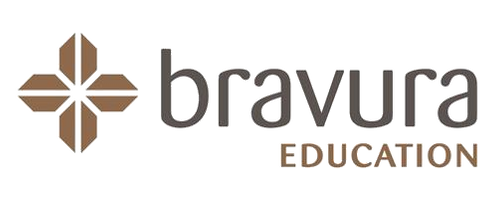
Tips for Success in Flexible Learning
Changing your career path and entering the specialised field of cosmetic/medical laser therapy is a significant yet rewarding decision. When I first started I read everything I could get my hands on first, especially text books like this one from Dr Baumann, obtained my laser safety certificate as a top priority, found a reputable place to work and learnt on the job in a highly ethical specialist skin clinic.
Understanding the Field
Cosmetic/medical laser therapy is a rapidly evolving sector within healthcare, specialising in treatments that utilise lasers and light-based technologies. It spans from aesthetic enhancements to medical treatments, representing a cutting-edge industry trend. This field demands a blend of technical skills, clinical knowledge, and a compassionate approach to patient care, making it an exciting opportunity for those considering a career change.
Assessing Your Current Skills and Experience
Transitioning to laser therapy often starts with a self-assessment. Many skills from other careers, especially within healthcare, are transferable. If you're contemplating a career transition or switching professions, evaluate how your background can contribute to your new role. For instance, if you're a nurse, dentist, or even a beauty therapist, your experience with patient care and basic clinical procedures can be a strong foundation. Identifying the skills needed for a career in laser therapy is the first step in career exploration within this niche.
Pursuing Relevant Education and Training
Education is key in a career transition. Look for credible institutions like Bravura Education, known for their high standards in clinical practice and safety. Entry-level positions in this field require specific educational requirements, and professional development is crucial. Courses should cover the fundamentals of laser physics, skin biology, safety protocols, and practical strategies. Opt for programs that are approved by radiation health departments, evidence-based and that align with the latest industry standards.
Gaining Certification and Licenses
In Queensland, Western Australia and Tasmania, practicing laser therapy requires specific certifications and licenses. Ensure that the courses you choose are recognised by relevant regulatory bodies to make this process as easy as possible. This not only legitimises your practice but also instils confidence in your clients. If you need to write a Radiation Safety Protection Plan (RSPP), we are here to help make that a piece of cake for you.
Building Practical Experience
Practical experience is crucial and it is important to start with relatively straightforward treatments like hair removal and then progress through to more complex ones like redness and skin resurfacing. Initially, this might mean working under supervision or taking up internships. Look for job opportunities in dermatology clinics, cosmetic surgery centres, or specialised laser treatment facilities. Real-world experience will enhance your skills and deepen your understanding of various laser treatments. It is unlikely that you will have to pay for your practical as it is usually gained on the job under mentorship or provided by the laser company you but your device from.
Networking and Continuous Learning
The cosmetic and medical laser field is continuously evolving with industry trends. Stay updated with the latest technologies and treatment methods. Join professional groups, attend seminars, and engage with peers. Networking can also lead to job opportunities and collaborations. One of our favourites is in Sydney in March every year, Cosmedicon.
Marketing Your Skills
If you're planning to set up your own practice or work as a contractor in the cosmetic industry, marketing is vital. Develop a strong online presence, create informative content, and leverage social media to reach potential clients. Highlighting your unique skills and specialised training can set you apart in the competitive market. Be sure if you are a registered health professional that you are abiding by AHPRA and TGA requirements in any marketing and advertising.
Ethical Practice and Patient Care
Ethics and patient care should be at the heart of your practice. Always prioritise patient safety, obtain informed consent, and maintain confidentiality. Building a reputation for ethical practice and excellent patient care can be your biggest asset in this field, contributing to job satisfaction. It also protects you from potential litigation. It has been shown by an insurer that having a laser safety certificate reduces the number and severity of adverse outcomes.
The Key Take Aways
Transitioning to cosmetic/medical laser therapy is a journey of continuous learning and adaptation. With the right education, practical experience, and a patient-centred approach, you can not only change your career path but also make a significant impact in the lives of those you treat. It's a field where science and art converge, offering a fulfilling and dynamic career.
laser training, IPL, LLLT, laser safety course, laser safety training, laser online, laser safety officer certificate, laser safety officer, laser safety officers course, laser hair removal course, laser certificate, laser education, laser tattoo removal course, Brisbane, Queensland, Hobart, Tasmania, Perth, Western Australia, Sydney, NSW, Melbourne, Geelong, Victoria, Adelaide, South Australia, ACT, Canberra, accredited, endorsed, APHRA, CPD, nurse, nursing, laser IPL, doctor, medical, beauty therapist, dermal therapist, laser therapist, laser course, Sydney, Brisbane, Melbourne, laser safety course, low level laser, laser technician, podiatrist, podiatry, dentist, dentistry, physio, physiotherapist, laser course near me, laser course Brisbane, laser course Melbourne, laser course Sydney, laser course Perth, hospital, LSO, perioperative, theatre, surgical, operating suite, ARPANSA, ACORN, online, online course, accredited, endorsed, Laser Safety Committee, Workplace Health and Safety, low level laser therapy, laser tattoo removal, laser hair removal, laser pigmentation removal, RSO, radiation safety officer course, radiation safety officer.
Post Disclaimer
This blog post has been vigilantly researched and fact checked to ensure that it is accurate, reliable and up to date. You must keep in mind that errors and omissions may occur and that we welcome any feedback or corrections in this regard. We encourage you to do your own research to verify the accuracy and contemporary nature of the information presented.
